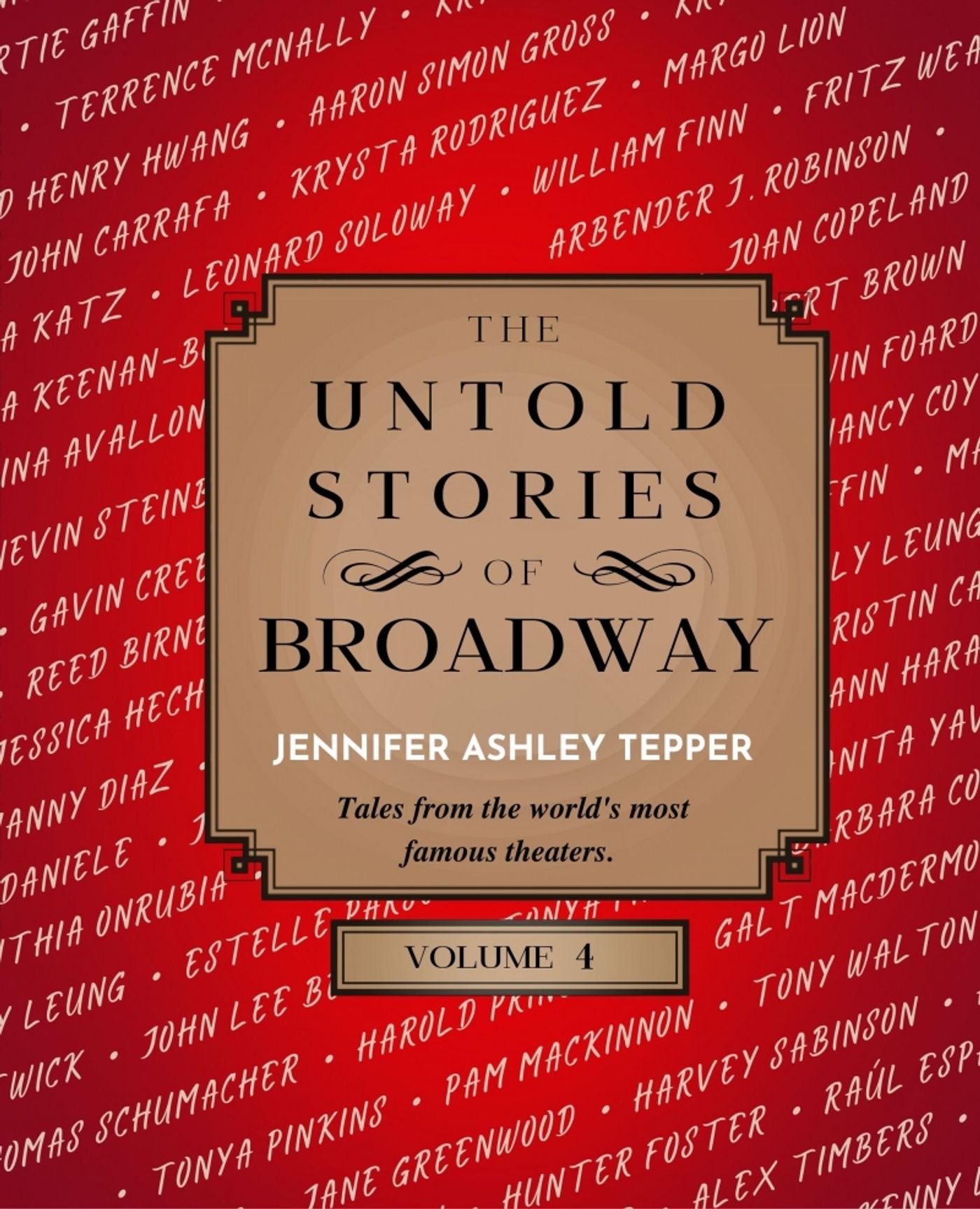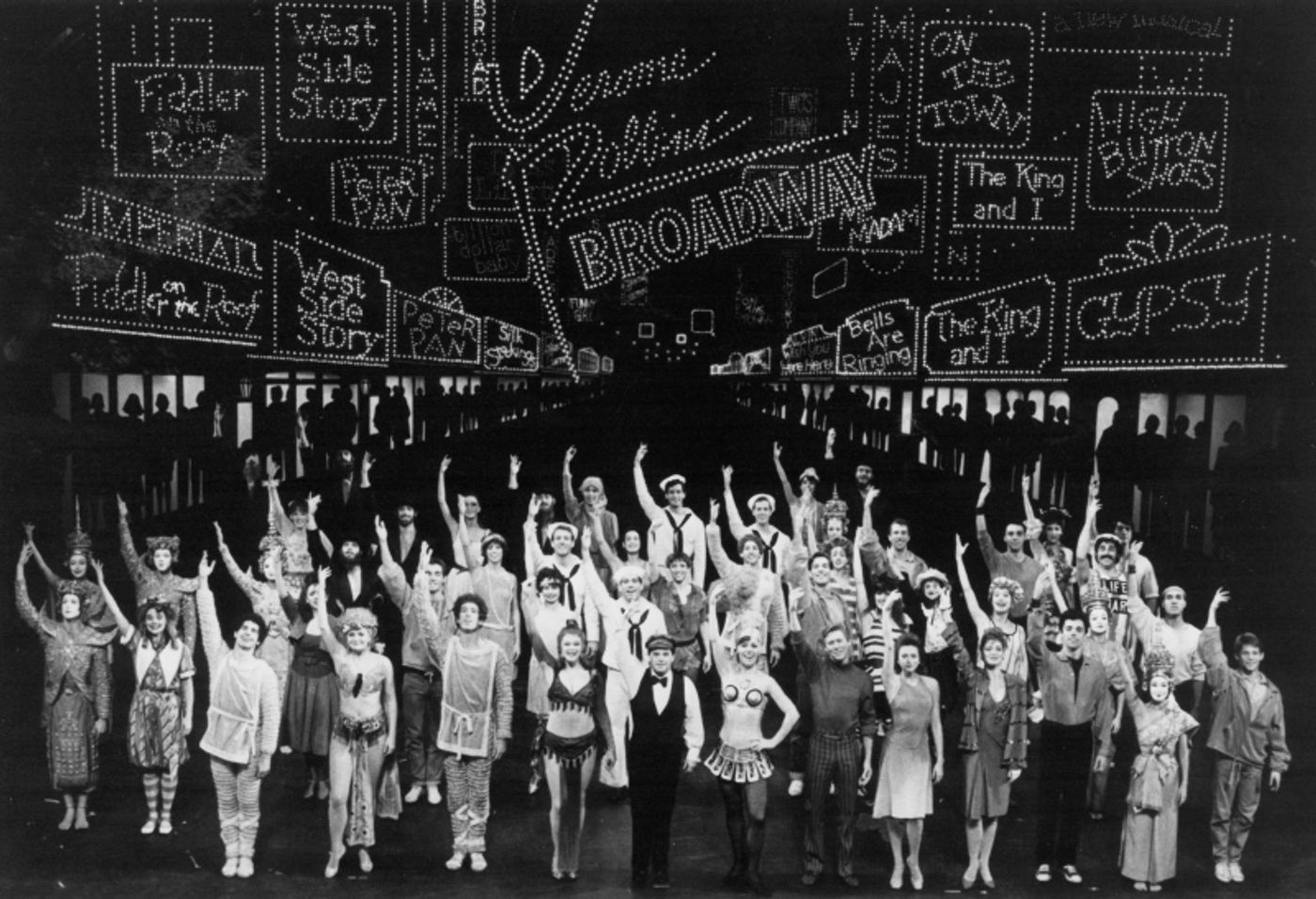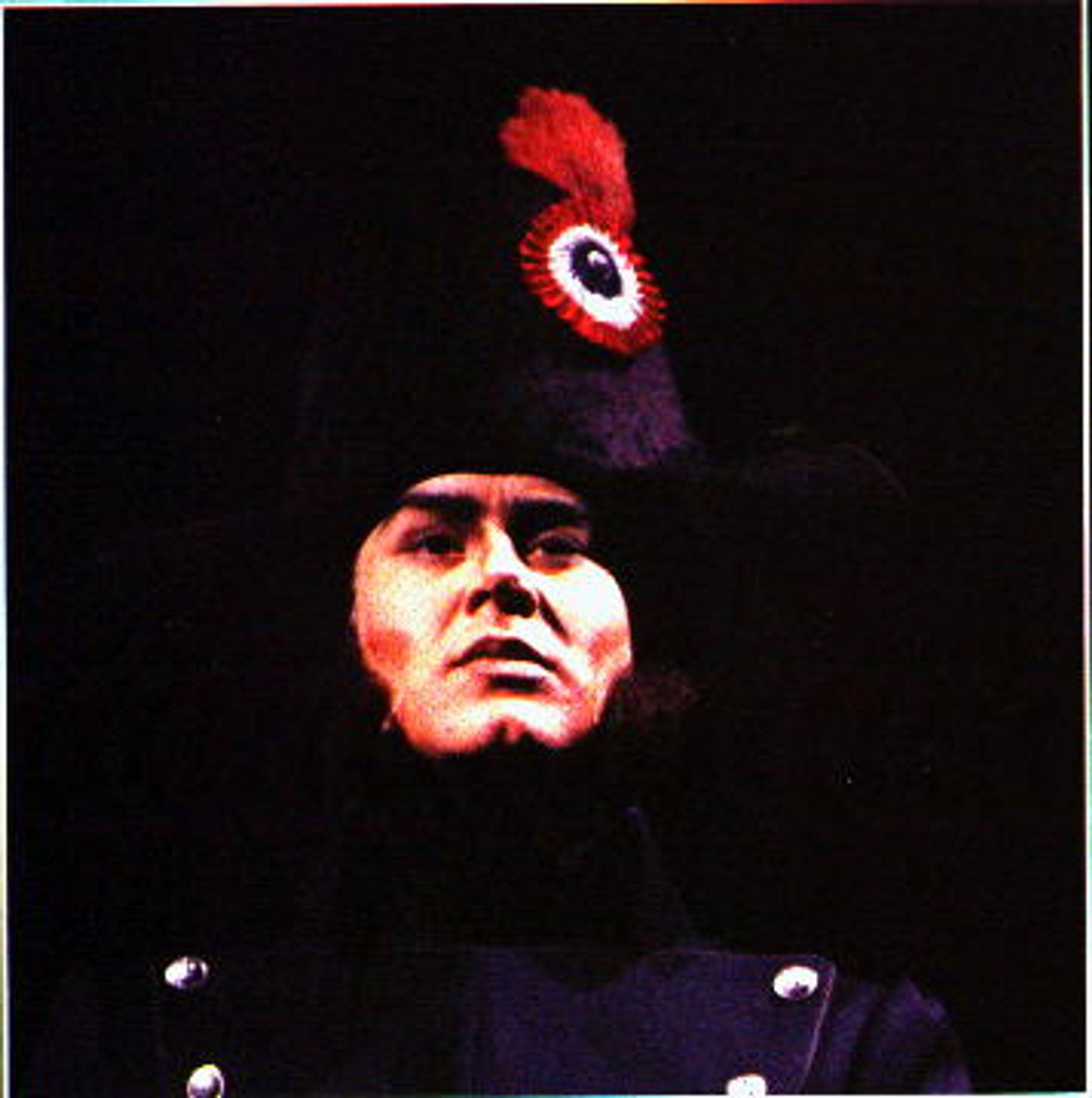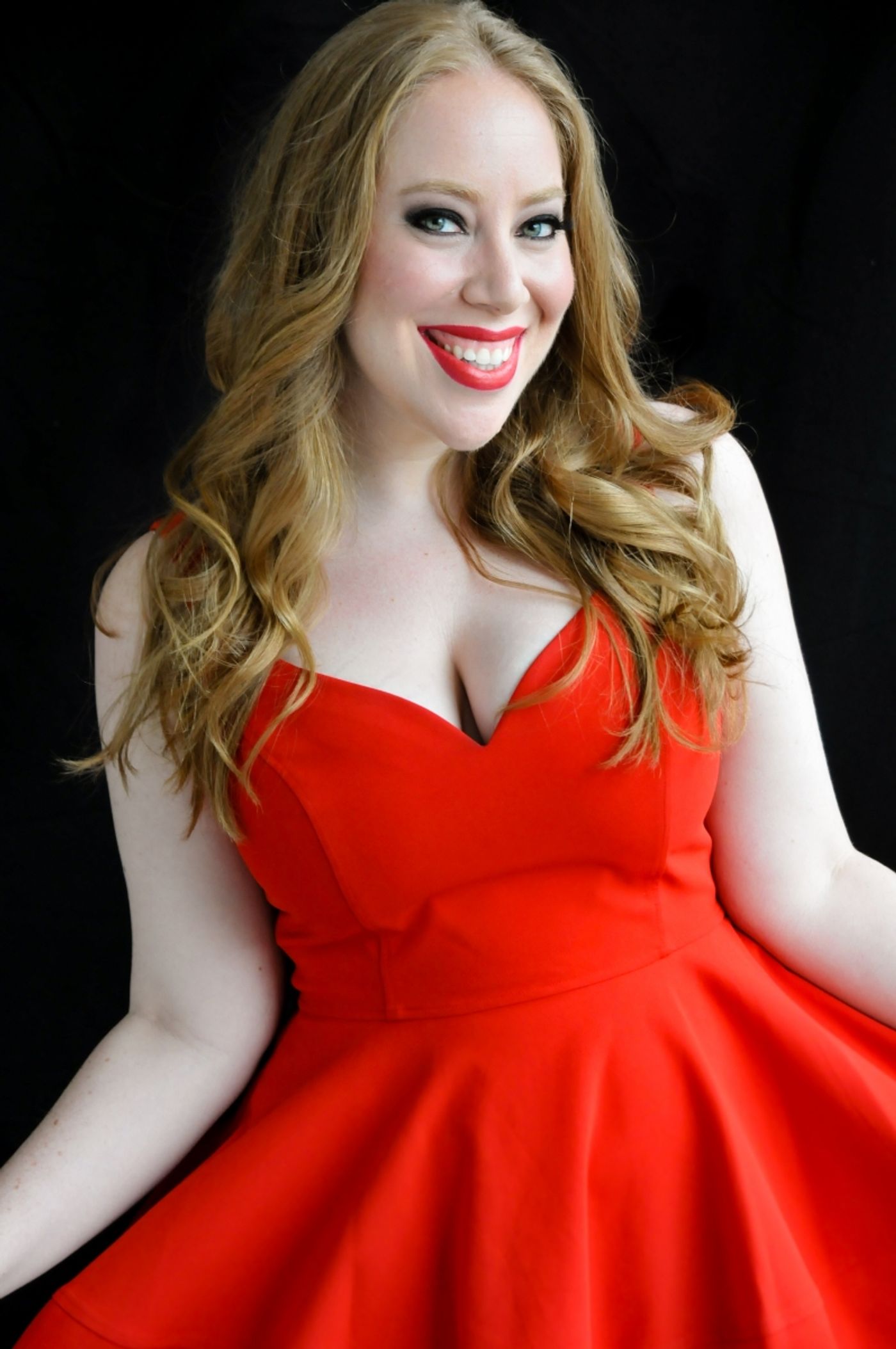BWW Exclusive: Jennifer Ashley Tepper's THE UNTOLD STORIES OF BROADWAY, VOLUME 4- Spotlight on The Imperial Theatre
Did You Know: Jason Alexander won a Tony Award for playing Tevye in the same theater where he saw his first Broadway show: Fiddler on the Roof?
 On Tuesday, March 9, Dress Circle Publishing will release of THE UNTOLD STORIES OF BROADWAY, VOLUME 4, the latest in a series by acclaimed historian and producer Jennifer Ashley Tepper. This landmark multi-volume series tells the stories of all of the theaters on Broadway; the new addition includes the beloved houses the Imperial, Jacobs, Studio 54, Minskoff, Friedman, and Golden, as well as the five Broadway theaters that were destroyed in 1982, changing the course of New York City history.
On Tuesday, March 9, Dress Circle Publishing will release of THE UNTOLD STORIES OF BROADWAY, VOLUME 4, the latest in a series by acclaimed historian and producer Jennifer Ashley Tepper. This landmark multi-volume series tells the stories of all of the theaters on Broadway; the new addition includes the beloved houses the Imperial, Jacobs, Studio 54, Minskoff, Friedman, and Golden, as well as the five Broadway theaters that were destroyed in 1982, changing the course of New York City history.
These invaluable books illuminate Broadway through the eyes of the producers, actors, stage hands, writers, musicians, company managers, dressers, designers, directors, ushers, door people and more who bring the theater to life each night.
Can't wait to get your hands on it? Let BroadwayWorld hold you over with a special sneak peek from a chapter all about The Imperial Theatre:
The Imperial Theatre
Did You Know:
Jason Alexander won a Tony Award for playing Tevye in the same theater where he saw his first Broadway show: Fiddler on the Roof?
1964/1989: Tradition
Jason Alexander, Actor
The first Broadway show I saw was the original production of Fiddler on the Roof. I was four or five years old and I saw it with the original cast.
My parents tell me that I sat, paying rapt attention the entire time.
It was a special occasion for us to see this show. We were a Jewish family, and Jewish musicals, even in the New York theatre scene, were few and far between at that point. The whole Jewish community was very excited about Fiddler; it was important to them.
I got to come back to the Imperial in Jerome Robbins' Broadway and play a bit of Tevye in the Fiddler on the Roof portion of the show. You could do a book just about that production. It was remarkable. It was extraordinary in every sense of the word.
The people I got to meet were the legendary writers and composers for the musical theatre. The cast I got to work with was comprised of incredibly gifted artists and performers. Jerry Robbins was one of the most commanding figures of 20th Century Theatre and dance, and he was everything you'd ever heard he was, both good and challenging.
I was in an unusual position in the show because, having absolutely no foresight, I thought appearing in it would be inconsequential to my career. The show was essentially a giant dance revue of Robbins' greatest dances for the theatre and I was not at all a good enough dancer to execute most of it. So, I was not particularly excited at first in regards to my potential role. I wanted to do work where I could really stretch and grow and shine as an actor, and I didn't think this was going to be that. But I started becoming more intrigued as I learned that they hired me to essentially write and create my own role. That took me closer to the inner circle of the makings of a Broadway show than I had ever been. That was what excited and fulfilled me.
I always had aspirations of becoming a director and have managed to make directing a major part of my professional life. The Robbins show became a tremendous education and opportunity on that level. It was a long, arduous, often extraordinarily joyful process. Original writers and composers would visit and contribute. Original cast members of the shows we were recreating would appear to offer stories and insights. There were also tempers and egos, injuries and broken promises. But the result of all of it was something that we were all very proud of.
The night after the show won the Tony Award for Best Musical, I remember this huge audience response to our first appearance onstage. It was the stuff of dreams. But even that paled in comparison to the response we got on opening night, which I don't think any of us will ever forget.

The way that Jerome Robbins' Broadway opened was that after the overture, the curtain would go up on the full company onstage, dressed in outfits that represented the entirety of the show. We stepped forward as a group and took a communal bow. Then I did a short introductory monologue, after which the real show began.
As we stepped forward on opening night to take that bow, there was a seemingly endless ovation. It went on for minutes. I've never seen anything like it. It stopped the show cold. Everybody onstage felt weak from that kind of energy, and everyone started weeping or laughing or hugging. They were the most extraordinary minutes I've ever had standing in front of an audience.
Robert Morse was performing the solo show Tru across the street at the Booth Theatre during the tech rehearsals of Jerome Robbins' Broadway. One day, he started showing up at our daytime rehearsals and hanging out in the auditorium of the Imperial. The second or third time he appeared, I got up the nerve to go to him and say, "Mr. Morse, what are you doing here?" And he said, "I'm lonely." He was lonely doing his one-man show, so he came to where there was a cast of 70 and thought he would blend in and nobody would know the difference! We knew the difference. And we were happy to make him one of us.
Did You Know:
The late Merwin Foard once played Gaston in Beauty and the Beast on Sunday and then Javert in Les Miserables two days later?
1990: Sunday As Gaston at the Palace, Tuesday As Javert at the Imperial
Merwin Foard, Actor
I did Les Mis at both the Broadway and the Imperial. I was in the cast that did the move between theaters when the show switched to make room for Miss Saigon in 1990.
We were thrilled to be getting a week off, because we figured it would take some time for stagehands to break down the barricades and the turntable and set everything up in a new space. But it turned out that Les Mis had a set in storage and they just put that in the Imperial. So we played Sunday night at the Broadway and Tuesday night at the Imperial! No break.
 I was in Les Mis until 1991. Then, in 1994, I was doing Beauty and the Beast at the Palace. I went home for dinner after the Wednesday matinee show and got a call from my agent. He said, "Bob Cuccioli is leaving Les Mis to do Jekyll and Hyde-he has it in his contract that the moment Jekyll goes to Broadway, he goes too. They want you to come replace him and be Javert in Les Mis. But you have to give your notice to Beauty and the Beast tonight." I got off the phone, went to my computer, typed up my notice, and printed it out on my Dot Matrix printer that made all of those funny noises.
I was in Les Mis until 1991. Then, in 1994, I was doing Beauty and the Beast at the Palace. I went home for dinner after the Wednesday matinee show and got a call from my agent. He said, "Bob Cuccioli is leaving Les Mis to do Jekyll and Hyde-he has it in his contract that the moment Jekyll goes to Broadway, he goes too. They want you to come replace him and be Javert in Les Mis. But you have to give your notice to Beauty and the Beast tonight." I got off the phone, went to my computer, typed up my notice, and printed it out on my Dot Matrix printer that made all of those funny noises.
That night, between shows, I went to Jim Harker, our production stage manager, and handed him the notice. We had only been open seven months, and he was like, "What is this?!" Because I was leaving an ensemble track to do a principal role, I was allowed to quit-but I was required to give four weeks' notice. My first performance as Javert was in four weeks. Luckily, when I was originally in Les Mis, I covered Javert and I went on for the role once a week. At that point, there was a deal where whoever played the role did seven performances and had one off. So I already had some experience playing Javert, and thus it was quick and easy for the production to call me and ask me to do it again.
On the last Sunday that I was in Beauty and the Beast, I was on for Gaston, which I understudied. So on Sunday I was Gaston at the Palace and on Tuesday I was Javert at the Imperial. On my first night back in Les Mis, I came out the stage door and was signing autographs. A young couple who were musicians studying at the University of Connecticut approached me and said, "We saw you play Gaston in Beauty and the Beast two days ago and tonight we saw you as Javert in Les Mis! What show are you going to be in tomorrow?" They weren't kidding-they thought I was some kind of universal swing who flew all over Broadway and did whatever show needed me. Like tomorrow maybe I would be in Phantom and the next day Spider Woman.
Did You Know:
The Broadway musical that put a real swimming pool on stage also pulled off one of the greatest salvage jobs in theatre history?
Summer camp has been a richly inspiring setting for films, but there aren't many musicals on the topic. Perhaps this is because most summer camp stories make sense as gradual coming-of-age tales that aren't plot-driven. Wish You Were Here was an exception. A 1952 musical based on a play about a summer camp for single-and-ready-to-mingle Jewish adults, Wish You Were Here is largely remembered for putting a real swimming pool on the Imperial stage. It should also be remembered for one of the great salvage jobs of any musical in town.
Because of the swimming pool, Wish You Were Here could not schedule the standard out-of-town tryout. It instead planned a long preview period in New York of 26 pre-opening showings-almost unheard of in the early 1950s. For comparison, most of that season's other biggest musical hits, including the Best Musical Tony Award winner Wonderful Town, didn't even play previews in New York. They fixed their problems out-of-town.
After Wish You Were Here opened to deadly negative reviews, Joshua Logan, whose directorial trademark of bare skin and fit bodies were on display in the show,[1] did the unprecedented. He did a huge rewrite of the show. In addition to directing Wish You Were Here, Logan was also the choreographer, one of the writers,[2] and one of the producers, so he had the muscle needed to pull something like this off. Everyone assumed the summer camp romp would close in a couple weeks but the extensive hack job he did on the show really did make it work much better. Word-of-mouth picked up, the swimming pool and carefree fun pleased audiences who did make it to the Imperial, Jerome Robbins doctored some of the choreography, and recording star Eddie Fisher recorded the title song, the best commercial the show could've hoped for. An appearance on The Ed Sullivan Show also helped immensely. Wackiest of all, Princeton Fabrics, who had sponsored the bathing suits featured in the show, advertised everywhere, proclaiming that their bathing wear gave a 4-star performance in the show.
Wish You Were Here actually ran longer than Wonderful Town, and was technically the longest-running musical of the 1953 season. But while Wonderful Town is still a beloved title and the Tony winner, Wish You Were Here has stopped being performed, despite a few decades of popularity in stock and amateur circles and a cast album in circulation. The theaters that would've once performed Wish You Were Here started opting for more modern youthful titles-Bye Bye Birdie and Grease pushed Wish You Were Here out.
The show did win two Tonys: one for its featured actress, Sheila Bond, and the other in a fascinating retired Tony category: Best Stage Technician. It was no wonder that master carpenter Abe Kurnit took home the prize, since Tony voters could see that the swimming pool installation took massive skill. This award was given out from 1948 to 1963. The famed Peter Feller, of Feller Scenery Studios, won Best Stage Technician for the previous Imperial show, Call Me Madam.[3]
An 18-year-old Florence Henderson, the future Carol Brady on The Brady Bunch, and a 28-year-old Reid Shelton, the future original Warbucks in Annie, made their debuts in the Wish You Were Here ensemble.
[1] Logan was known for putting his cast's bodies on display in shows like South Pacific and All-American. You knew it was a Logan show if someone was taking off their shirt to sing a number about fitness.
[2] Logan co-wrote the Wish You Were Here book with Arthur Kober, great-uncle of actor Andrew Kober, who played the Imperial in the 2014 revival of Les Misérables.
[3] Peter Feller is the father of Philip Feller, whose story appears earlier in the chapter.
To pre-order THE UNTOLD STORIES OF BROADWAY, visit www.dresscirclepublishing.com.
 Jennifer Ashley Tepper is producer of the musicals Be More Chill, Broadway Bounty Hunter, and Love in Hate Nation, recent projects that are part of a decade-long collaboration with the group known as Joe Iconis & Family. From producing small concerts in basements to producing a show on Broadway, Tepper has cultivated the theatrical collective which The New York Times called "the future of musical theatre." She is also the Creative and Programming Director at Feinstein's/54 Below, where she has curated or produced over 3,000 shows, including musicals in concert, original solo acts, theatrical reunions, songwriter celebrations, and more. Tepper's leadership at the venue has gained praise from publications including The New York Times, Huffington Post, Buzzfeed, Playbill, Newsday, New York Post, and more.
Jennifer Ashley Tepper is producer of the musicals Be More Chill, Broadway Bounty Hunter, and Love in Hate Nation, recent projects that are part of a decade-long collaboration with the group known as Joe Iconis & Family. From producing small concerts in basements to producing a show on Broadway, Tepper has cultivated the theatrical collective which The New York Times called "the future of musical theatre." She is also the Creative and Programming Director at Feinstein's/54 Below, where she has curated or produced over 3,000 shows, including musicals in concert, original solo acts, theatrical reunions, songwriter celebrations, and more. Tepper's leadership at the venue has gained praise from publications including The New York Times, Huffington Post, Buzzfeed, Playbill, Newsday, New York Post, and more.
On Broadway, Tepper has worked on [title of show], The Performers, Godspell, Macbeth, and The Parisian Woman, and off-Broadway Smokey Joe's Café and Boys' Life. Tepper is the conceiver and director of The Jonathan Larson Project which premiered in fall 2018 and received an original cast recording from Ghostlight Records. She is historian consultant on the upcoming tick, tick... BOOM! movie and co-creator of the Bistro Award-winning concert series, "If It Only Even Runs A Minute," now in its 11th year. Tepper recently received a 2020 Lincoln Center Emerging Artist Award. She was named one of the 10 professionals on Backstage's first annual "Broadway Future Power List," which stated: "Proving herself both a zeitgeist predictor and theatrical historian with her eclectic programming, Tepper is leading the conversation on contemporary musical theatre."
Comments
Videos


